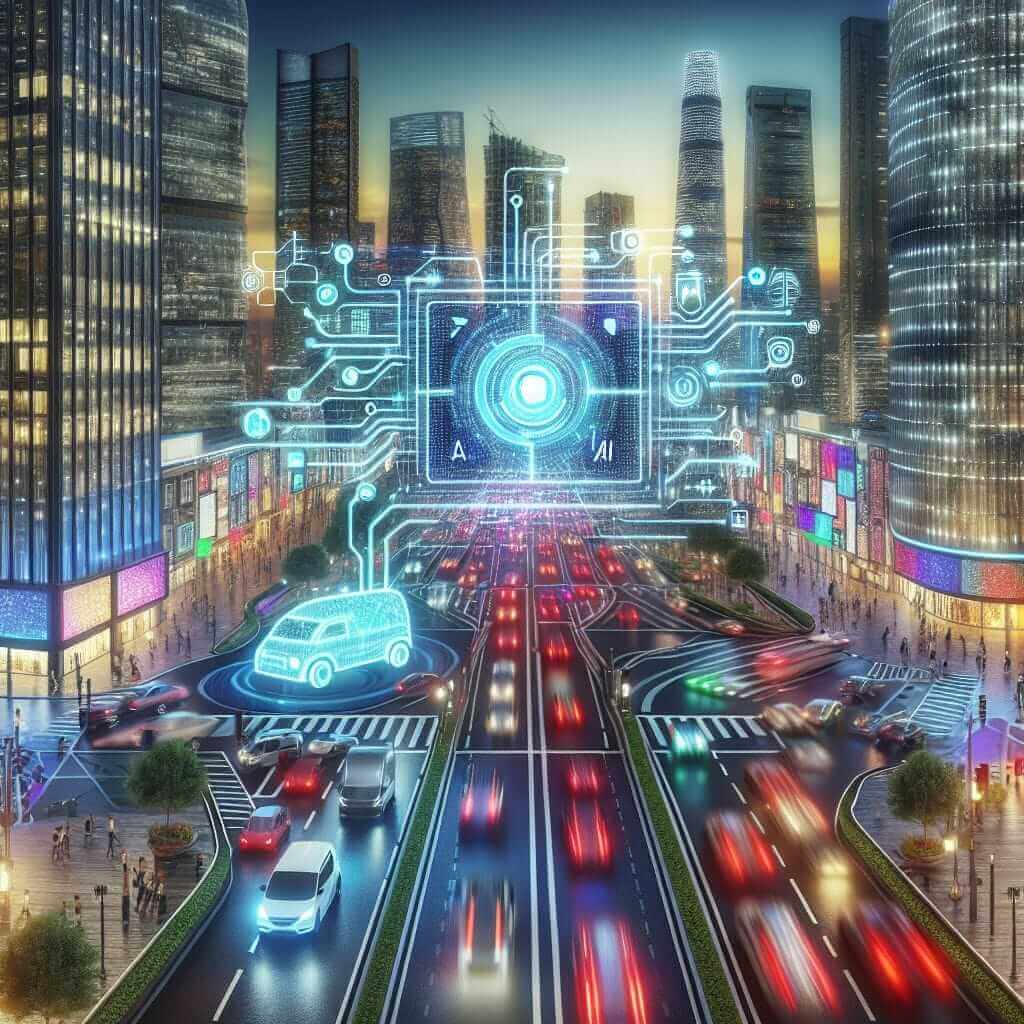The Reading section of the IELTS exam can be quite challenging as it assesses a wide range of skills from skimming and scanning to understanding complex passages. One of the trending and timely topics is “How does AI influence the development of smart cities?”. This subject has gained significant attention in recent years due to rapid technological advancements and urbanization. Its relevance makes it a likely candidate for future IELTS Reading passages.
Main Body
Sample IELTS Reading Text
Context: Medium Text
AI’s role in developing smart cities has been transformative, making urban areas more efficient, sustainable, and livable. From traffic management to waste disposal, AI applications have contributed significantly.
One of the most critical aspects where AI has shown its prowess is traffic management. Cities like Los Angeles and Singapore are utilizing AI-powered systems to assess real-time traffic data, optimize signal timings, and even predict traffic conditions. This has resulted in reduced congestion and improved emergency response times.

AI’s influence also extends to waste management. Traditional waste collection methods are often inefficient and costly. AI can analyze waste generation patterns and optimize collection routes, leading to cost savings and reduced environmental impact. For instance, smart bins equipped with sensors can notify waste collectors when they need to be emptied, thus improving efficiency.
Moreover, AI enhances public safety through sophisticated surveillance systems capable of recognizing suspicious activities and alerting authorities. Facial recognition technology, although controversial, has been deployed in certain cities to identify and track individuals, further ensuring citizen safety.
Furthermore, AI has paved the way for smarter energy grids. By analyzing consumption patterns, these grids can more effectively distribute electricity, thus minimizing wastage and stabilizing the supply.
The adoption of AI in smart cities isn’t without its challenges. Issues such as data privacy, cybersecurity, and the digital divide remain. However, with proper regulations and ethical guidelines, AI’s contribution to smart cities can be substantial and beneficial.
Questions
Multiple Choice
-
What is one of the primary benefits of AI in traffic management?
- A) More traffic signals
- B) Reduced congestion
- C) Increased traffic police
- D) Higher driving speed
-
How does AI improve waste management?
- A) By building more landfills
- B) By creating waste
- C) By optimizing collection routes
- D) By reducing waste generation
Identifying Information (True/False/Not Given)
-
AI has decreased traffic congestion in Singapore.
True -
AI-powered surveillance systems can recognize suspicious activities and alert authorities.
True -
AI has eliminated all challenges related to data privacy and cybersecurity in smart cities.
False
Matching Information
Match the city with the AI application mentioned:
A) Los Angeles
B) Certain cities
C) Cities with smart waste management
- Optimization of signal timings: ___
- Facial recognition technology: ___
- Use of smart bins: ___
Answers: 6-A, 7-B, 8-C
Sentence Completion
-
AI has shown its prowess in ____ which leads to improved emergency response times.
-
By analyzing ____, smart energy grids can distribute electricity effectively.
Answers: 9-traffic management, 10-consumption patterns
Answer Key
- B) Reduced congestion
- C) By optimizing collection routes
- True
- True
- False
- A) Los Angeles
- B) Certain cities
- C) Cities with smart waste management
- traffic management
- consumption patterns
Common Pitfalls
Many test-takers struggle with accurately matching information or completing sentences due to skimming over key details. It’s essential to focus on keywords and understand their context within the passage.
Vocabulary
- Optimization (noun): /ˌɒptɪmaɪˈzeɪʃən/ – the action of making the best or most effective use of a situation or resource.
- Surveillance (noun): /səˈveɪləns/ – close observation, especially of a suspected spy or criminal.
- Prowess (noun): /ˈpraʊəs/ – skill or expertise in a particular activity or field.
- Congestion (noun): /kənˈdʒestʃən/ – the state of being overcrowded or clogged.
Grammar Focus
In this passage, pay attention to:
- Relative Clauses: such as “which leads to improved emergency response times.”
- Passive Voice: for example, “can be optimized,” shows a formal tone appropriate for academic writing.
Conclusion
To excel in the IELTS Reading section, practice is key. Regularly engaging with passages like the one above will refine your skills. Pay attention to detail—whether it’s vocabulary, grammar, or question types—as understanding these elements will enhance your performance. Always aim to read widely on varied topics, staying informed about current trends such as the development of AI in smart cities. Happy studying!